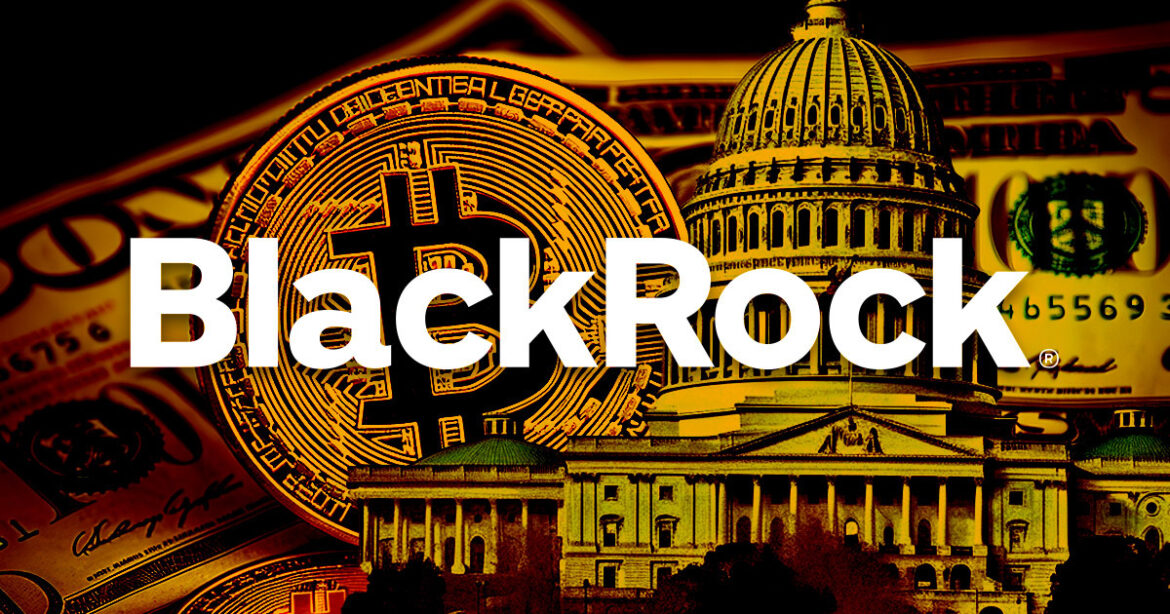 Economist and gold bug Peter Schiff has warned that something big is happening that very few investors are prepared for. “More importantly, governments and central banks are not prepared for it either,” he stressed. Schiff explained that Fed rate cuts will make the inflation problem worse. Peter Schiff’s Warnings Economist and gold bug Peter Schiff […]
Economist and gold bug Peter Schiff has warned that something big is happening that very few investors are prepared for. “More importantly, governments and central banks are not prepared for it either,” he stressed. Schiff explained that Fed rate cuts will make the inflation problem worse. Peter Schiff’s Warnings Economist and gold bug Peter Schiff […]
Source link
happening
Why widespread tech layoffs keep happening despite strong U.S. economy
The tech sector is having a big 2024. Nvidia just crushed earnings expectations. The artificial intelligence boom remains in full swing. The tech-heavy Nasdaq index is up more than 8 percent year to date.
The U.S. economy is also doing surprisingly well, adding 353,000 jobs in January, well ahead of economists’ forecasts. Hotter-than-expected inflation data may also keep the Fed from cutting rates as soon as the market expects, a sign that the economy remains strong enough to support tighter monetary policy for longer.
It’s a different story for tech workers, though.
“The layoffs to the start of 2024 signal a dramatic shift in the tech industry,” said Jeff Shulman, professor at the University of Washington’s Foster School of Business. “We’re going to continue to see layoffs happen as the future of work has changed, as the future of technology has changed and as investors’ appetite for risk and growth versus profitability has dramatically changed as well.”
The number of tech sector layoffs in 2024 has been outpacing the number of terminations in 2023. So far, about 42,324 tech employees were let go in 2024, according to Layoffs.fyi, which tracks layoffs in the tech industry. That averages out to more than 780 layoffs each day in 2024. In 2023, nearly 263,000 tech employees got laid off, averaging to about 720 layoffs each day that year.
There are several factors behind the churn. AI is at the forefront. Companies need to free up cash to invest in the chips and servers that power the AI models behind these new technologies. There’s also the stock market effect. Companies that conducted layoffs haven’t been punished, either by investors or on their bottom lines. In fact, they’ve been rewarded with rising stock prices.
Watch the video above to learn why another rough year of layoffs may lie ahead for tech workers, and why the surprising strength of the U.S. economy may not be coming to their rescue.
Solana (SOL) has garnered significant attention in the cryptocurrency market, surpassing its peers with an impressive 79% upward trend over the past 30 days. As its price continues to soar, inquiries have arisen regarding the reaction of the Solana ecosystem to this surge.
About this subject, the Jarvis Labs team has offered intriguing insights into the ongoing SOL bull run and the condition of its ecosystem, addressing the factors influencing its growth.
Is The Solana Ecosystem Lagging Behind?
Despite SOL’s price surge, the Total Value Locked (TVL) on Solana has only doubled during this period, failing to match the fourfold increase in SOL’s token price. This disparity raises concerns about the growth and development of Solana’s ecosystem in 2023. A closer examination of the ecosystem reveals a significant lag compared to the rapid appreciation of SOL’s price.

The Jarvis Labs team highlights that a new wave of projects injects liquidity into Solana’s ecosystem, offering hope for its growth. Notably, these projects have been launched within the past year, leading to a diverse ecosystem rather than a concentration of similar offerings.
Among the top gainers in TVL, seven projects emerged recently, contributing to Solana’s expanding landscape.
Several projects have caught attention within Solana’s ecosystem, showcasing their potential to drive growth. Jito, a liquid staking provider, offers maximum extractable value (MEV) rewards alongside staking yields.
Marginfi, another noteworthy project, offers liquid staking tokens (LST) based on Jito’s platform, as well as a lending service emphasizing risk management. Additionally, decentralized exchanges like Phoenix and Jupiter have excelled in their respective niches.
Surprisingly, many successful projects within Solana’s ecosystem have yet to launch their tokens. This absence of tokens, according to Jarvis Labs, has contributed to “the lag in Solana’s TVL” despite the soaring token price.
Sustainable Token Design
The hesitance to introduce tokens stems from past experiences, where projects tied to now bankrupt crypto exchange FTX and its trading arm Alameda Research suffered significant losses, leaving a cautious sentiment among Solana developers, according to Jarvis Labs’s analysis.
The Jarvis Labs team believes that while tokens have the potential to be valuable assets, the cautionary tale of FTX-related projects highlights the importance of sustainable token design. Fair distribution, reasonable supply, and clear use cases are essential to creating tokens that add real value to the ecosystem.
Despite the challenges Solana’s ecosystem faces, the emergence of new projects and the forthcoming launch of tokens by some protocols offer hope for its future growth.
Ultimately, Jarvis Labs suggests that by embracing sustainable token designs and maintaining a focus on ecosystem development, Solana can unlock the full potential of its “thriving network.” The Jarvis Labs’ analysis concluded:
So, to all the Solana protocols out there: let’s make tokens great again. Let’s create tokens that are more than just a quick cash grab, tokens that contribute to the growth and sustainability of the ecosystem.
SOL’s price is approaching the $42 level, experiencing a notable surge of 3.7% within 24 hours.
Featured image from Shutterstock, chart from TradingView.com
US state agency issues alert on crypto fraud happening over social media
The Vermont Department of Financial Regulation (DFR) — the United States state of Vermont’s financial regulatory agency — warned citizens against rising crypto investment frauds perpetrated over popular social media sites.
On June 25, 74-year-old Naum Lantsman lost his life savings of $340,000 to a crypto scam orchestrated over Instagram and Telegram. The DFR referenced the incident as it emphasized “the need for Vermonters to exercise extreme caution and vigilance when using or investing in cryptocurrency.”

Instagram has been rated as the top platform connected to crypto fraud by the Federal Trade Commission (FTC), which is also true for Lantsman. His initial contact with the crypto scammer happened over Instagram, wherein he came across a post from SpireBit claiming to be an “international financial broker” dealing in cryptocurrencies.
Without any form of investigation or research about the platform, Lantsman created an account on SpireBit. A Spirebit representative contacted Lantsman over Telegram and, over several days, coerced him into making investments.
What started as a $500 investment ultimately resulted in a more than $340,000 loss. Once a user invests on fake platforms like SpireBit, the dashboard shows profits on every trade, which encourages investors to shell out more of their savings.
Lantsman had heard about crypto scams in the past but never expected himself to become a victim of the crime. Vermont DFR blames the rising crypto scams on the con artists that devise “more complex, personalized tactics” with layers of deception.
From forging bank documents and statements to having friendly conversations, scammers’ ever-evolving techniques can be tackled through vigilance and background checks.
Vermonters have been asked to report fraud in a timely manner to help reduce financial damage and track down criminals.
Related: Five US enforcement agencies form new digital currency anti-crime task force
Eun Young Choi, director of the U.S. Justice Department’s National Cryptocurrency Enforcement Team, said that decentralized finance hacks were a “pretty significant issue,” given the rise of North Korean “state-sponsored hackers.”
Justice Department Announces First Director of National Cryptocurrency Enforcement Teamhttps://t.co/PvJ6iRDQ8P
— Justice Department (@TheJusticeDept) February 17, 2022
Choi also reaffirmed that the Justice Department is after crypto firms that either commit the crime or turn a blind eye to “obscure the trail of transactions.“
Collect this article as an NFT to preserve this moment in history and show your support for independent journalism in the crypto space.
Magazine: US enforcement agencies are turning up the heat on crypto-related crime
BlackRock spot Bitcoin ETF ‘not happening,’ application politically motivated, says Noelle Acheson
Noelle Acheson of the Crypto is Macro Now newsletter poured cold water on the possibility of the U.S. Securities Exchange Commission approving BlackRock’s Bitcoin ETF application, saying, “It’s not going to happen.”
The Bitcoin community largely took the news of the ETF application positively.
For example, Peter McCormack pondered whether its approval would spark a bull market. Similarly, YellowBlock co-founder Teddy Clep said, “If approved, expect a pump that will break your screen.”
However, others expressed caution, such as Twitter account Consumers’ Research – raising an exception to the company’s pro-ESG stance. While Will Clemente pointed out that BlackRock CEO Larry Fink had previously called Bitcoin an “index of money laundering.”
ESG refers to criteria for assessing environmental, social, and governance standards. Some have claimed it is a tool of social control and a scam in that a high ESG score does not necessarily equate to responsible corporate behavior.
SEC’s track record
With the SEC’s track record on the spot BTC ETF approvals, in conjunction with the ongoing U.S. regulatory war against crypto, Acheson is not alone in thinking a spot Bitcoin ETF would not win approval – with Bloomberg analyst Eric Balchunas putting hypothetical 575-1 odds on it happening.
Acheson explained to CryptoSlate that BlackRock is aware its application will not get approved but filed anyway to send a political message.
When quizzed on what she meant, the Crypto is Macro Now writer said Fink is a Democrat supporter and likely a significant donor. He seeks to send a “subliminal message” to the White House to have them re-examine their aggressive regulatory approach to crypto.
The post BlackRock spot Bitcoin ETF ‘not happening,’ application politically motivated, says Noelle Acheson appeared first on CryptoSlate.





